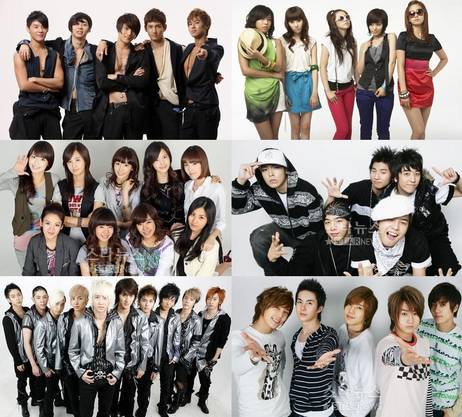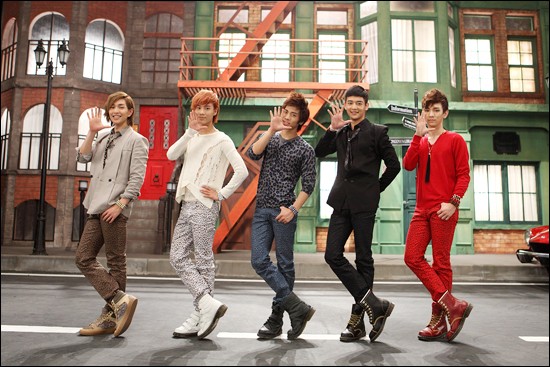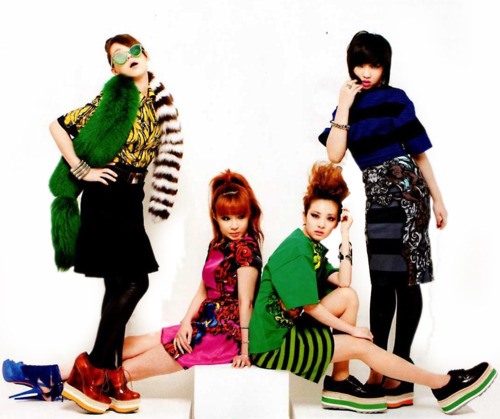You can’t define an era when you’re in it. People living during the Renaissance years didn’t wake up one morning and think, “Hey, I’m in the middle of the Renaissance!” Millions of kids around the globe donning their circular glasses and Gryffindor scarves and heading off to midnight book release parties never intended to be dubbed “the Potter generation.” And likewise, for a while, I never considered myself to be witnessing an era in K-pop. But now that I feel a sense of things drawing to a close, I see it.
The first questions are likely to be, “What sort of era are you talking about here? How do you define an era? What is the time span?” When I’m talking about an era, here, I’m talking about a musical and stylistic era. Take, for example, old-school K-pop. You know what I’m referring to: Shinhwa, H.O.T, S.E.S, and the rest. It’s all dated by a very specific sound (and very specific hairstyles). All the groups involved kicked off and came to close around the same time period. Most of the members have moved on by now. Similarly, when I claim that there’s been an era of group coming to a close, I mean a very specific bunch: Super Junior, DBSK, the Wondergirls, etc. If I told you to think about K-pop circa, oh, 2008 or so, you’d know the general trends I’d be talking about. That was around the peak of the most recent idol wave. But that wave has long since crested, and those trends and idols that were involved are on the wane.
Oh, definitely, most of these groups are still up and running and fairly popular. But it’s as if the sand in their hourglasses has nearly trickled away; Super Junior members are one by one slinking away to do their mandatory military service, DBSK is split and diminished, and the the Wondergirls have been on the decline since their mild, short-lived US success. They’re all approaching their pop culture twilight years. Even the groups that were the in-between generation of that wave are showing signs of maturity. Think SHINee: they were the adorable little noona baiters of the idol world. Now there’s a surplus of groups young enough to call them “sunbae,” and bitty baby Taemin is legal. Even Rain’s time is running out, and BoA is a has-been. This aging process is inevitable. After all, pop groups all have a shelf life, especially withSouth Korea’s mandatory military service policy, and the general fixation on the ideal of youth. Still, it’s a sobering thought, to realize that you witnessed both the coming and the going of something of a musical movement. I imagine that’s what my parents feel, when thinking back on their flop-topped New Wave days.
So if this crop of groups is phasing out, who’s ascending to replace them? It’s a tricky question. Of the idol debuts in the last two years or so, which ones really rose to the level of the DBSKs and the SNSDs before them? Only 2NE1, and at a stretch, Miss A, come to mind. There’s really nothing that’s come that rivals the explosive popularity of the idols that came before. 2011 had no real “song of the summer,” with an accompanying instantly recognizable dance. Nothing particularly iconic or trendsetting has been put out. Interest in traditional pop idols has been fading. Instead, the underground musicians and rock and hip-hop artists within the K-indie movement are gaining momentum, thanks to thriving new internet cultures and communities. In effect, the same shift that took place around the dawn of the internet era in the US is taking place in South Korea, just about a decade or two behind. This is both a good thing and a bad thing. It could put the Big Three entertainment companies and their cohorts out of business, just as the slow death of boy groups and girl groups stateside caused several major labels to slip and nearly lose their footing. But at the same time, it breeds artistic freedom, creativity, and most importantly, power to the people. There will come a time when success is no longer determined by how perfectly in-sync the dancing is, or how tiny the faces are. There will come a time when producers might actually let bands plug in their guitars for live performances on music shows. There may even come a time when, dare I say it, average looking people are the norm in the business.
Of course, that time is still a good ways off. There’s still a respectable number of people who tune into their weekly music shows to watch pubescent, overworked boys and girls do the song and dance routine (myself included). The fan cafés still have a vast number of junior high schoolers, sighing over the latest ulzzang promoted to idol group member. But still, I feel the winds changing. So I bid you, Super Junior, a premature but fond adieu. Although it’s early, I tip my hat to you, DBSK, and wish you boys well. And I anxiously await the next generation.
Do you think that an era of K-pop is coming to a close? What are your thoughts about the potential “new generation”?




